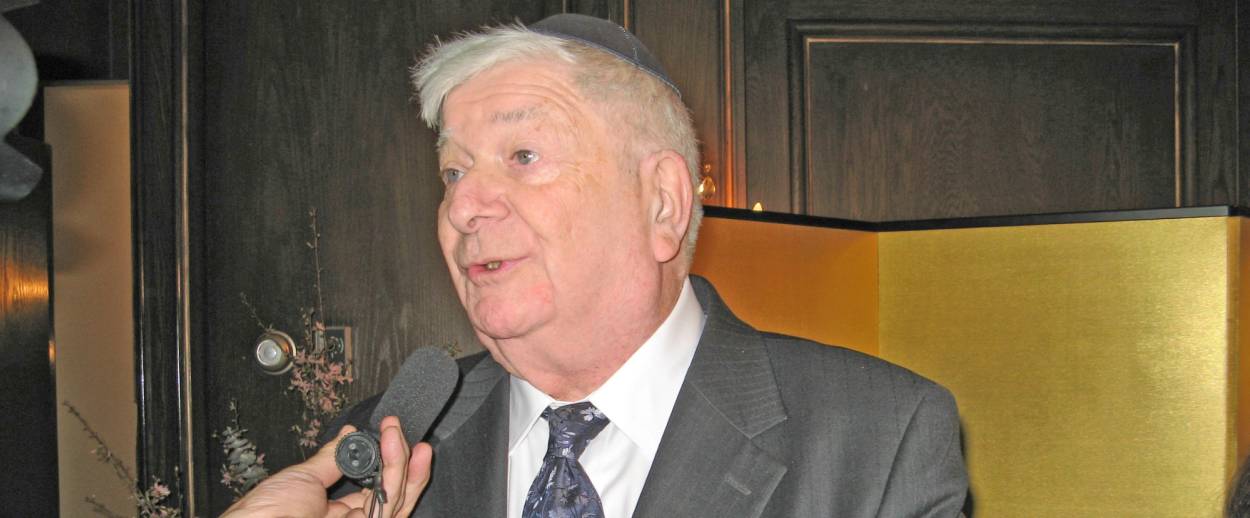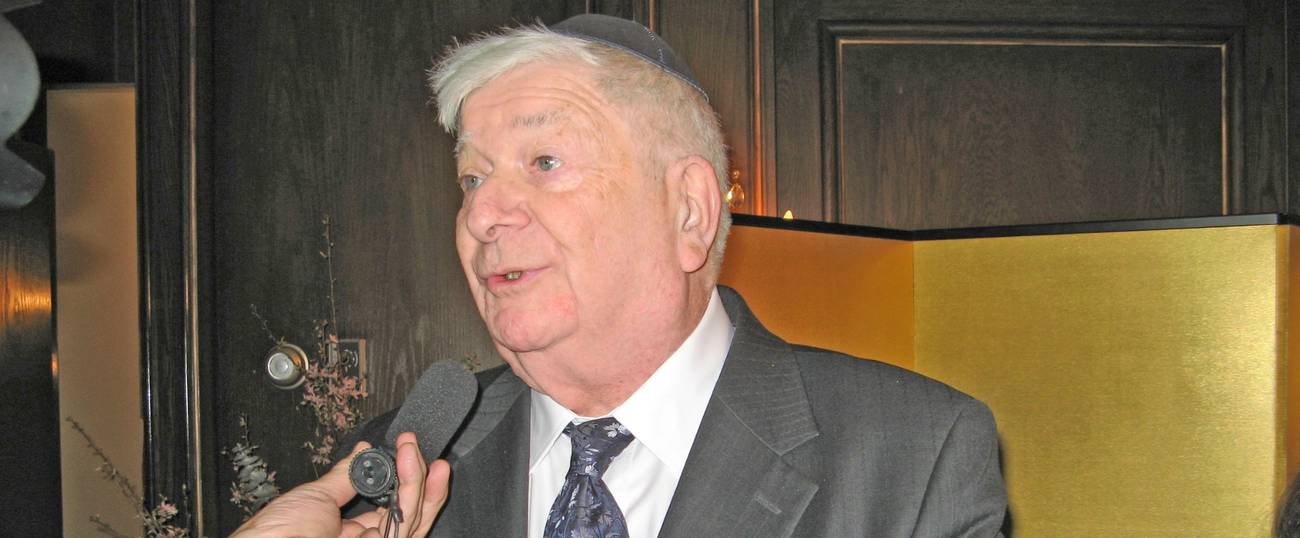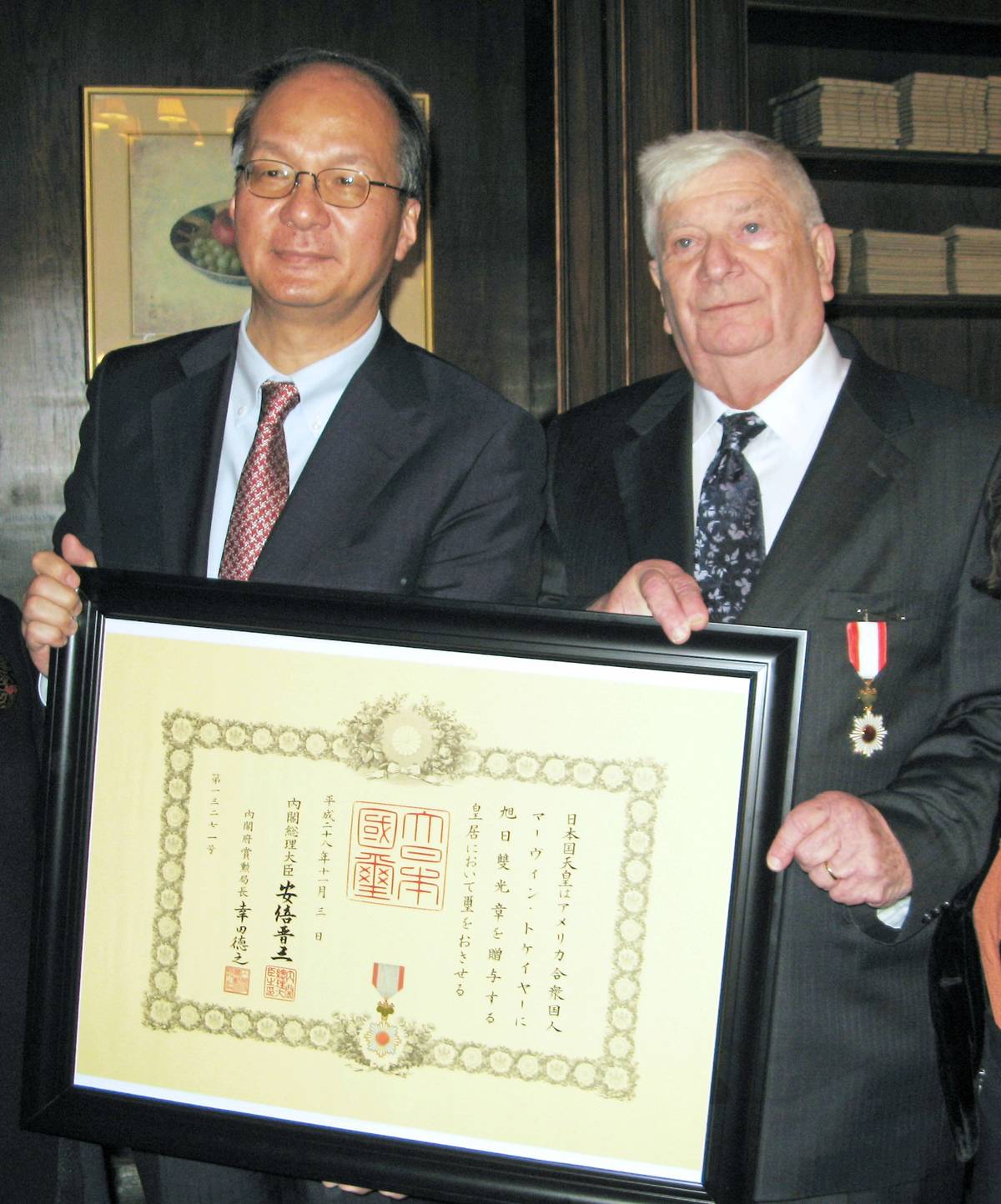Rabbi Marvin Tokayer Honored for Lifetime of Service Between Jewish and Japanese Communities
Tokayer and his wife were sent to Japan by the Lubavitcher Rebbe in 1967: ‘We went for two years and forgot to come home.’




“Good evening! Kambawa!” exclaimed Rabbi Marvin Tokayer to a crowd of nearly 100 guests after Japan’s Ambassador in New York, Reiichiro Takahashi, presented him with the prestigious Order of the Rising Sun, Gold and Silver Rays. During the award ceremony, which took place at Takahashi’s Manhattan residence on February 6, Tokayer was lauded by the ambassador for having “enlightened and deepened the understanding between the Jewish and Japanese people,” the ambassador concluded with a hearty “mazal tov!”
“I never anticipated the highest honor afforded by the Government of the Emperor of Japan!” beamed Tokayer, who was stationed as a U.S. Air Force chaplain in Southern Japan in 1962, then returned in 1968 to serve as the only English-speaking, university-educated rabbi for Jewish communities in the Far East.
Tokayer recalled: “In 1967 I was about to get married, went to the Lubavitcher Rebbe, Menachem Schneerson, for a blessing and, out of nowhere, he said: ‘You’re going to Japan as the rabbi for the Jewish community.’ My reaction [was that I knew it] wasn’t my cup of tea—foreign language. ‘It’s your destiny,’ insisted the Rebbe. Japan will recognize you for your contribution to the Jewish People, to Japan; and Japan for helping the Jewish people.’ That was fifty years ago. We went for two years and forgot to come home.”
Our children are ‘made in Japan,’ for export.”

Recalling his meeting with Emperor Hirohito’s younger brother, Prince Mikasa (who recently died at 100), Tokayer described him as “a good student of the Bible who told me: ‘You have two goals: educate Japan about the Jewish people, educate the Jewish people about Japan.’ He got it right. There is a missing page in the Jewish-Japanese experience and it’s time we started to know it. During my stay in Japan I produced a book on the Talmud in Japanese. It sold 750,000 copies!
Tokayer’s launch into his honor scroll continued: “Isaac Albert Mosse (in 1886) helped draft the constitution of Japan’s Meiji Empire; Jewish financier Jacob Schiff gave Japan $105 million to build the fleet the defeated the Tsar in the 1905 Russo-Japanese War; Krakow-born Joseph Rosenstock was the conductor of the Japan Symphony from the 1930’s, and later of the Nippon Philharmonic Orchestra during WWII, till 1944. The Nazi ambassador in Tokyo told them, ‘We will get you a real conductor, not a Rosenstock! Japan’s response: ‘We don’t tell you what to do in Berlin, don’t tell us what to do in Tokyo.’ Beate Sirota Gordon helped draft the 1946 post-war Japanese constitution guaranteeing childrens’ and womens’ rights and more…”
Tokayer was on a roll: “On December 19, 1938, five members of the Japanese government, the prime minister, foreign minister, finance minister, army and navy ministers signed a document: There will be no anti-Semitism anywhere in Japanese territory. This was during the Nazi era! They kept their word.”
But Tokayer’s pièce de résistance was the saga of a Trans-Siberian train enroute to Vladivostok during WWI, ending up on the border of Manchuria. With passion, Tokayer described the trip: “Trapped—without a permit—on the Soviet side… with Cossacks ready to send the Jews on the train to the Arctic Circle Gulag.” He then detailed how the “Japanese government sent trains to that border, transferred the Jews over the border—all of whom ended up in Kobe (some in Shanghai). Whoever heard of a government sending trains to save Jews?
Rabbi Tokayer is the co-author with Mary Schwartz of The Fugu Plan: The Untold Story of the Japanese and the Jews During World War II, which tells the story, among other stories, of Chiune Sugihara’s life-saving visas that brought my mother and me to safety in Kobe in 1941. At a convent school I attended, Japanese and French nuns once tried to replicate a Seder for us Jewish refugee children.
Previous: Chiune Sugihara, the Japanese Diplomat Who Saved Thousands from the Nazis, Gets His Own Movie
Masha Leon is an award-winning journalist and longtime cultural columnist for The Forward and other publications. She has won Poland’s Knight Cross of Merit Medal for articles relating to Polish-Jewish affairs, and is a frequent speaker on her history as a Sugihara survivor.